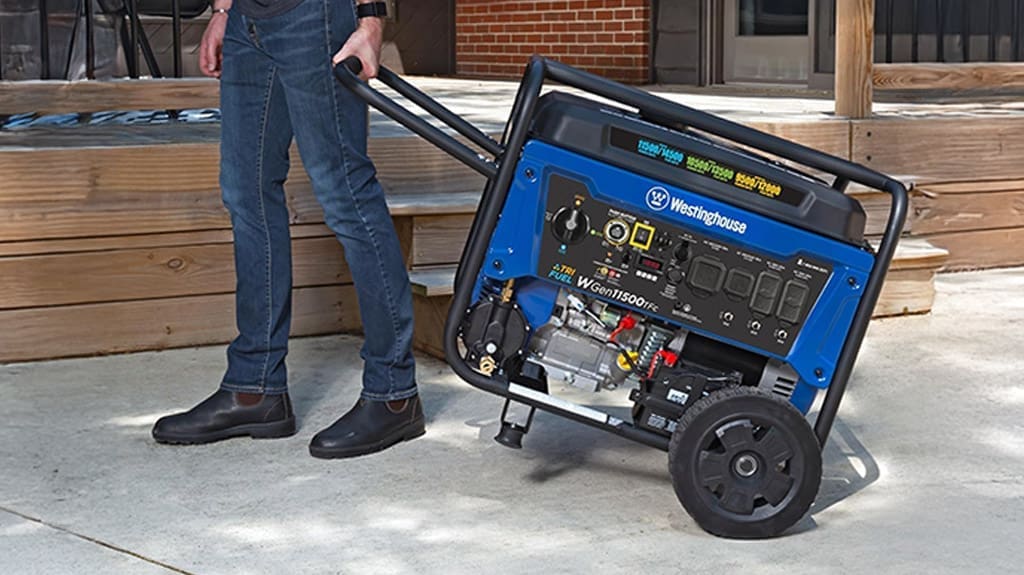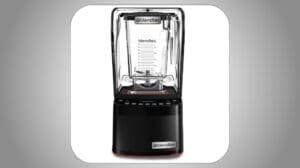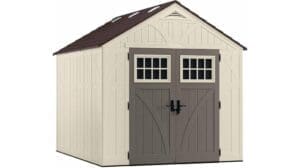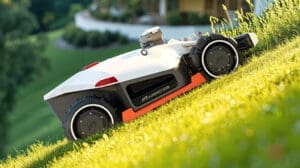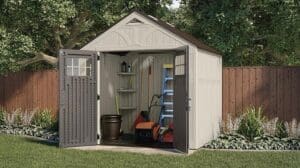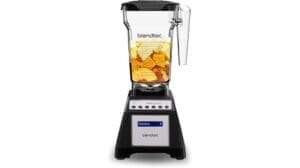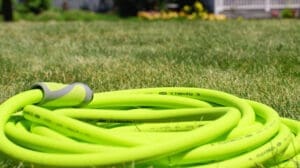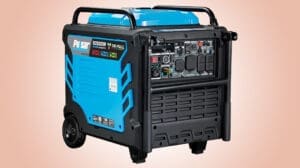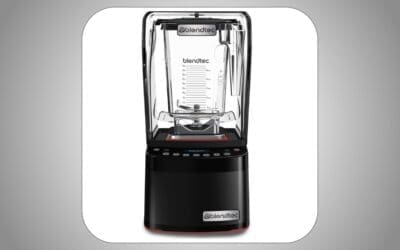Did you know that portable backup generators can not only power your home during outages but also enhance your outdoor experiences? With various options available, choosing the right generator can make a significant difference in convenience and reliability. From dual fuel capabilities to quiet operation, these generators cater to diverse needs. Discover which models stand out and what features you should consider to guarantee you’re prepared for any situation.
Some Key Points
- Assess power output capacity, ensuring the generator can handle your essential appliances during outages with sufficient starting and running watts.
- Consider fuel type options, such as dual or tri-fuel generators, for flexibility and availability during emergencies.
- Evaluate noise levels to choose a generator suitable for residential areas, aiming for lower dBA ratings for quieter operation.
- Check for convenient features like electric start, remote start, and fast recharging capabilities to enhance usability during power outages.
- Regular maintenance is crucial for optimal performance and longevity, ensuring your generator remains reliable when needed most.

Champion Power Equipment 8500-Watt Dual Fuel Portable Inverter Generator
The Champion Power Equipment 8500-Watt Dual Fuel Portable Inverter Generator is an ideal choice for homeowners who need a reliable backup power solution during emergencies. It runs on either gasoline or propane, offering flexibility based on your needs. With 8500 starting watts and a quiet operation at 61 dBA, you can power essential devices without disturbing your peace. The CO Shield auto shutoff system guarantees safety, while multiple outlets enhance versatility for various uses. Plus, its easy startup and user-friendly design make maintenance a breeze. This generator’s performance during extended outages makes it a solid investment for any household.
Best For: Homeowners needing a reliable and versatile backup power solution during emergencies or outdoor activities.
Pros:
- Quiet operation at 61 dBA allows for normal conversation nearby, making it suitable for camping and RV use.
- Flexible fuel options with the ability to run on either gasoline or propane, providing convenience based on availability.
- User-friendly design with easy startup and maintenance features, including an EZ Start Dial and accessible oil change process.
Cons:
- Some users have reported concerns regarding CO module functionality in specific setups, requiring modifications.
- The generator’s weight may be cumbersome for some users when transporting it to different locations.
- Initial break-in period requires multiple oil changes, which may be seen as a hassle for some users.

DK 9200W Tri-fuel Generator for Backup Power
For homeowners seeking reliable backup power solutions, the DK 9200W Tri-fuel Generator stands out with its versatile fuel options, allowing you to run it on gas, propane, or natural gas. With a powerful 458cc 4-stroke engine, it delivers 9200 peak watts, ensuring you can keep essential devices running during outages. The compact design and wheels make transport easy, while the whisper-quiet operation won’t disturb your neighbors. Starting is simple with remote and electric features, though some users have noted minor adjustments may be needed for LPG. Regular maintenance keeps it running efficiently, making it a solid choice for your backup power needs.
Best For: Homeowners looking for a versatile and efficient backup power solution that can operate on multiple fuel types.
Pros:
- Versatile fuel options allow operation on gas, propane, or natural gas for greater flexibility.
- Whisper-quiet operation makes it suitable for residential areas and outdoor events without disturbing neighbors.
- Remote and electric start features provide ease of use, ensuring quick and convenient power access.
Cons:
- Mixed reviews on customer support may lead to challenges in troubleshooting and assistance.
- Some users report issues with the fuel selector switch, which is made of plastic and can be difficult to operate.
- Potential design flaws could affect long-term durability, particularly regarding battery charger specifications.

Segway Portable Power Station Cube 2000
If you’re looking for a reliable power source during camping trips or emergencies, the Segway Portable Power Station Cube 2000 stands out with its impressive 2200W AC output, which can be expanded to 4400W. With a robust 2048Wh LiFePO4 battery that endures over 4000 cycles, it guarantees longevity. You’ll appreciate the super-fast recharging in just 1.8 hours and efficient solar charging with MPPT technology. While it powers devices like laptops easily, keep in mind it’s not suited for larger appliances. Plus, the 5-year warranty gives you peace of mind for your portable power needs.
Best For: Outdoor enthusiasts and campers seeking a reliable and portable power source for smaller devices during trips or emergencies.
Pros:
- Super-fast recharging in just 1.8 hours, ensuring quick readiness for use.
- Expandable capacity with additional batteries, allowing for increased power needs as required.
- Durable design with an IP56 rating, providing protection against water and dust.
Cons:
- Not suitable for large appliances like refrigerators, limiting its use for certain applications.
- Transparency issues regarding included items, such as solar panels, which are sold separately.
- Increased weight with added modules may affect overall portability.

A-iPower SUA15000EC 15000 Watt Ultra Heavy Duty Generator
With an impressive 15,000 starting watts and 12,000 running watts, the A-iPower SUA15000EC is an exceptional choice for homeowners seeking reliable power during outages. This heavy-duty generator features a 680cc engine and supports multiple appliances simultaneously, making it perfect for powering refrigerators, air conditioners, and electronics. Users enjoy a run time of up to 13 hours on just 7 gallons of gas. While some report noise levels typical of portable generators, the performance during storms has garnered high satisfaction. Just remember to maintain it properly for ideal longevity, and you’ll have dependable power when you need it most.
Best For: Homeowners seeking a reliable and powerful generator to maintain essential appliances during power outages.
Pros:
- Powerful Performance: 15,000 starting watts and 12,000 running watts to support multiple appliances simultaneously.
- Fuel Efficiency: Users report up to 13 hours of run time on just 7 gallons of gas.
- Easy to Use: Quick assembly and immediate operation after fueling, making it user-friendly during emergencies.
Cons:
- Noise Levels: Some users find the noise typical of portable generators to be a drawback.
- Shipping Issues: Reports of poor packaging leading to shipping damage and delays.
- Maintenance Required: Regular maintenance is necessary for optimal performance and longevity.

Generac iQ3500 Portable Inverter Generator
The Generac iQ3500 Portable Inverter Generator stands out as an excellent choice for outdoor enthusiasts and anyone needing reliable power during emergencies. Weighing around 100 lbs, its lightweight design makes it easy to transport, especially for camping or tailgating. With a powerful 3,500-watt output, you can run multiple devices, including a 9K BTU air conditioner, without issues. The electric start is convenient, while the PowerRush technology provides over 50% more starting capacity. It operates quietly and runs for about 20 hours on eco mode, ensuring you have the power you need when it matters most.
Best For: Outdoor enthusiasts and those needing reliable power for camping, tailgating, or emergency situations.
Pros:
- Quiet operation comparable to high-end models, making it suitable for recreational use.
- Long run time of about 20 hours on eco mode, providing consistent power for extended periods.
- Easy to start with electric start and PowerDial, along with the option for pull start if needed.
Cons:
- Heavy weight of around 100 lbs, making it less portable without additional transport aids like a wheel kit.
- Minor issues reported with the electric starter due to battery connections, requiring occasional troubleshooting.
- Lack of wheels as a standard feature, which can hinder mobility for some users.

Pulsar PGD95BISCO Portable Inverter Generator
For homeowners seeking a reliable power source during outages, the Pulsar PGD95BISCO Portable Inverter Generator stands out with its super quiet operation at just 62 dBA. With dual fuel capabilities, it offers 9500W peak power on gas and 8550W on propane, making it versatile for various needs. You’ll appreciate the long run time—up to 12 hours on a 20lb propane tank. It features multiple outlets, including 30A and 50A options for larger demands. The remote start and eco mode enhance user experience, ensuring easy mobility and efficient fuel consumption for your home or food truck.
Best For: Homeowners looking for a quiet and reliable dual fuel generator for power outages or food truck operations.
Pros:
- Super quiet operation at just 62 dBA, making it suitable for residential areas.
- Dual fuel capability allows for flexibility between gasoline and propane, with excellent run times.
- Remote start and eco mode features enhance user convenience and fuel efficiency.
Cons:
- Some users reported noise levels increasing when running at high capacity.
- Power management is crucial to avoid overloading, which may require additional adapters.
- Initial setup may require tools and knowledge for interlock kit installation for home use.

SIMPSON Cleaning Portable Gas Generator and Power Station (SPG8310E)
Ideal for those who need reliable power for everything from home use to camping and construction, the SIMPSON Cleaning SPG8310E Portable Gas Generator stands out with its impressive 10,000 starting watts. With an 8300 running watt capacity and a runtime of up to 9 hours at a 25% load, it’s perfect for various applications. You’ll appreciate the five covered outlets, including 50 Amp and household options. Its electric start and low oil shutdown feature make it user-friendly and safe. Plus, the foldable handle and never-flat wheels enhance mobility. Just be prepared for some noise while it powers your essential appliances effectively.
Best For: Those seeking a powerful and portable generator for home use, camping, or construction sites.
Pros:
- Powerful performance with 10,000 starting watts and 8,300 running watts, making it suitable for multiple appliances.
- Electric start and low oil shutdown features enhance user convenience and safety.
- Designed for mobility with a foldable handle and never-flat wheels, allowing easy transport across various terrains.
Cons:
- Weighs approximately 207 pounds, requiring assistance for setup and transportation.
- Operates at a higher noise level, typical for generators of this wattage, which may be disruptive in quiet environments.
- Users report a strong initial smell and sputtering sound during startup, which may be off-putting.

Dabbsson Portable Power Station DBS2300 Plus
Looking for a powerful and reliable solution during power outages? The Dabbsson Portable Power Station DBS2300 Plus boasts a max capacity of 16660Wh and four 2200W AC outlets, perfect for your essential devices. With a compact design at around 60 pounds, it’s easy to handle. Its safety features, including a fireproof outer shell and advanced battery technology, guarantee peace of mind. Recharge it quickly via AC or solar input, and enjoy app control for added convenience. Users rave about its performance and customer support, making it a top choice for reliable power wherever you need it.
Best For: Those seeking a powerful and portable power solution for home backup, outdoor activities, or emergencies.
Pros:
- High capacity of 2300Wh allows for extended use of essential devices during power outages.
- Fast recharging capability, reaching 98% in just 1.5 hours via AC input.
- User-friendly app control for monitoring and managing power usage conveniently.
Cons:
- Some users have requested additional features, such as 220/240 volt outlets.
- Weighing approximately 60 pounds, it may be challenging to transport without wheels.
- Concerns regarding return policies have been noted by a few customers.

GENMAX Tri Fuel Generator (10500-Watt)
The GENMAX Tri Fuel Generator (10500-Watt) stands out as a versatile power solution for homeowners needing reliable backup during outages. With the ability to run on gasoline, LPG, or natural gas, you can choose the fuel that suits your situation best. It delivers a powerful 10,500 watts at startup, ensuring you can operate essential appliances simultaneously. The control panel features remote and electric start options for convenience. Although some users reported issues like bogging under load, its protective devices help safeguard your equipment. Plus, you’ll enjoy a 1-year warranty and lifetime technical support for peace of mind.
Best For: Homeowners seeking a reliable and flexible power source during outages or for heavy-duty outdoor use.
Pros:
- Tri-fuel capability allows use of gasoline, LPG, or natural gas for versatile fueling options.
- Low total harmonic distortion (THD) makes it safe for sensitive electronics and appliances.
- Comprehensive protection features help prevent damage from overloads, short circuits, and other electrical issues.
Cons:
- Some users reported performance issues such as bogging and surging under load.
- Delivery and packaging experiences vary, with some customers encountering missing items or damaged packaging.
- Initial setup may require additional purchases, such as bonding plugs or oil, which are not included.

Generac GP8000E Portable Generator
For homeowners seeking a reliable source of backup power, the Generac GP8000E Portable Generator stands out with its impressive 8,000-watt capacity and PowerRush Advanced Technology, which provides over 40% more starting power. You’ll appreciate the electric start for hassle-free operation and integrated COsense technology for safety. With a durable OHV engine and a large-capacity fuel tank, you can enjoy up to 11 hours of runtime at 50% load. Though some users report initial quality control issues, most praise its reliability and performance, making it a solid choice for both emergency power and recreational needs.
Best For: Homeowners and outdoor enthusiasts seeking a powerful and reliable portable generator for emergency backup and recreational use.
Pros:
- PowerRush Advanced Technology provides over 40% more starting capacity compared to traditional generators.
- Electric start feature allows for easy and convenient operation.
- Long runtime of up to 11 hours at 50% load ensures extended power availability during outages.
Cons:
- Some users report initial quality control issues, including missing parts.
- Starting difficulties have been noted by a few customers, particularly related to spark plug settings.
- Customer support experiences vary, with some users facing delays in receiving replacement parts.

Dabbsson DBS1300 Portable Power Station with Extra Battery
Ideal for outdoor enthusiasts and homeowners alike, the Dabbsson DBS1300 Portable Power Station with Extra Battery provides an impressive capacity expansion from 1330Wh to 3030Wh. You’ll enjoy versatile charging options, including AC, solar, and car charging, with a speedy 0-80% charge in just 44 minutes via AC. With 13 ports, including four 1200W pure sine wave AC outlets, it powers everything from phones to fridges seamlessly. Plus, its industry-leading LiFePO4 batteries guarantee safety and longevity, retaining 80% capacity after over 4,500 charge cycles. Expand further by adding two additional batteries for even more power when you need it most.
Best For: Outdoor enthusiasts, homeowners seeking backup power, and RV users who require reliable energy solutions.
Pros:
- Versatile charging options with AC, solar, and car charging capabilities.
- Impressive capacity expansion from 1330Wh to 3030Wh, and can be increased further with additional batteries.
- High safety standards with industry-leading LiFePO4 batteries that retain 80% capacity after over 4,500 charge cycles.
Cons:
- Limited solar charging capacity of 400 watts, which may result in slower charging times.
- Higher initial investment compared to some competitors, like ECOFLOW products.
- Weight and portability may be a concern for some users when transporting the unit.

Factors to Consider When Choosing Great Portable Backup Generators for Home
When choosing a portable backup generator for your home, you’ll want to take into account several key factors. Think about the power output capacity you need, the fuel type options available, and how loud the generator might be. Moreover, keep portability, weight, and maintenance requirements in mind to guarantee you pick the best fit for your situation.
Power Output Capacity
Choosing the right power output capacity is essential for guaranteeing your portable backup generator meets your home’s needs during an outage. Start by evaluating the power output in watts, which tells you how many appliances you can run simultaneously. Generators usually have two ratings: starting watts, needed to kickstart devices, and running watts, required to keep them going. For instance, a generator with 8,500 starting watts and 7,000 running watts can easily power essentials like refrigerators and lights. Make sure to calculate the total wattage of all devices you plan to use and select a generator that exceeds this total, allowing for power fluctuations and preventing overloads. This approach guarantees you stay powered up when it matters most.
Fuel Type Options
Understanding the fuel type options is essential for selecting the right portable backup generator for your home. Generators typically run on gasoline, propane, natural gas, or even multiple fuel types in the case of tri-fuel options. Gasoline generators usually provide higher starting and running wattage, making them ideal for heavy appliances. On the other hand, propane is cleaner and has a longer shelf life when stored. Tri-fuel generators offer flexibility, allowing you to switch between fuel types based on availability or cost during emergencies. Keep in mind that fuel consumption rates vary; propane generally provides fewer hours of operation per tank compared to gasoline. Environmental factors, like emissions, also play a significant role in your decision.
Noise Level Considerations
While evaluating portable backup generators for home use, noise level plays an essential role, especially if you live in a residential area or plan to use the generator during nighttime. Noise levels typically range from 61 dBA to 70 dBA, with lower ratings being more suitable for quiet environments. Generators with inverter technology tend to operate more quietly than conventional models, making them ideal for sound-sensitive situations. In addition, many modern generators come with eco modes that adjust engine speed based on power demand, thereby reducing noise during low-load conditions. Choosing a quieter generator allows for normal conversation nearby, enhancing your experience during both outdoor activities and power outages. Always consider noise levels to guarantee your comfort and that of your neighbors.
Portability and Weight
Portability and weight are key factors in selecting a backup generator that fits your needs. Lighter models, typically under 100 pounds, are much easier to transport and maneuver. Look for generators with wheels and foldable handles, as these features greatly enhance mobility, making it simpler to relocate the unit during power outages or outdoor events. Consider the weight distribution and overall design; compact models are generally easier to lift and store than bulkier ones. Some generators are specifically designed for transport, featuring sturdy frames and advanced noise reduction technology for quieter operation. Finally, check the generator’s dimensions against your available storage space, since larger units may take up more room and become inconvenient to handle.
Maintenance Requirements
When choosing a portable backup generator for home use, maintenance requirements should be a top consideration, as regular upkeep guarantees peak performance and longevity. Make certain to perform regular oil changes, ideally using synthetic oil for the best results. Furthermore, don’t forget to check the spark plugs and air filters regularly to keep everything running smoothly. Many generators also have a break-in period that requires multiple oil changes to clear out metal particles. Pay attention to fuel quality and opt for ethanol-free gasoline to avoid damage. Finally, keep your generator clean; removing debris and dirt buildup can greatly enhance its performance and lifespan. By staying on top of these maintenance tasks, you’ll maintain reliable power whenever you need it.
Safety Features
Regular maintenance keeps your generator running smoothly, but safety features are just as important when choosing a portable backup generator for home use. Look for generators with carbon monoxide detection systems, like integrated COsense technology, which automatically shuts off the unit when CO levels become dangerous. Models with CO Shield or similar auto shutoff features monitor air quality around the generator, preventing carbon monoxide poisoning. Overload protection mechanisms are essential, as they automatically shut down during overload conditions to protect both the generator and your devices. Furthermore, low-oil shutdown features safeguard the engine by turning off the generator when oil levels are low. Finally, check for safety certifications and GFCI-protected outlets to enhance electrical safety, especially for outdoor use.
Some Final Thoughts
In terms of choosing the right portable backup generator, think of it like packing for a trip: you want the essentials that fit your needs. Whether you’re camping under the stars or facing a power outage at home, the right generator guarantees you’re never left in the dark. With options like dual-fuel and ultra-quiet models, you can power up your essentials anywhere, anytime, making preparedness feel like second nature. So, gear up and stay ready for whatever comes your way!
Some Questions Answered

How Long Can Portable Generators Run on a Full Tank?
When you’re using a portable generator, the run time on a full tank depends on its size and load. Typically, smaller models may run for about 5 to 8 hours, while larger generators can last up to 12 or even 18 hours under lighter loads. Always check the manufacturer’s specifications for your specific model to get accurate estimates. Keeping an eye on fuel levels guarantees you won’t run out unexpectedly during your needs.
Are Portable Generators Safe to Use Indoors?
No, portable generators aren’t safe to use indoors. They produce carbon monoxide, a colorless, odorless gas that can be deadly in enclosed spaces. Even with ventilation, the risks outweigh the benefits. If you need power, always use them outdoors, away from windows and doors. Make sure to have a carbon monoxide detector nearby for added safety. Prioritize your health and the safety of those around you by keeping generators outside.
What Maintenance Is Required for Portable Backup Generators?
When you own a portable backup generator, regular maintenance is essential to keep it running smoothly. You should check the oil level, change the oil, and replace the air filter as needed. Inspect the spark plug and clean or replace it if necessary. It’s also important to keep the generator clean and free from debris. Finally, run the generator periodically to guarantee it’s operational when you need it most.
Can Portable Generators Power Sensitive Electronics?
Imagine you’re at home during a storm, and your power goes out. You grab your portable generator to keep your laptop running. Can it power sensitive electronics? Yes, but you need to be cautious. Many portable generators produce “dirty” power, which can harm delicate devices. Using a generator with a built-in inverter can help provide clean, stable power. Always check the wattage requirements of your electronics to guarantee they’re safe to connect.
How Do I Choose the Right Generator Size for My Needs?
Choosing the right generator size involves understanding your power needs. Start by listing all the devices you want to run, noting their wattage requirements. Add up the starting and running watts, as some appliances need more power to start. Look for a generator that meets or exceeds this total. Don’t forget to take into account future needs; it’s wise to have a little extra capacity just in case. With this approach, you’ll find a perfect fit!
